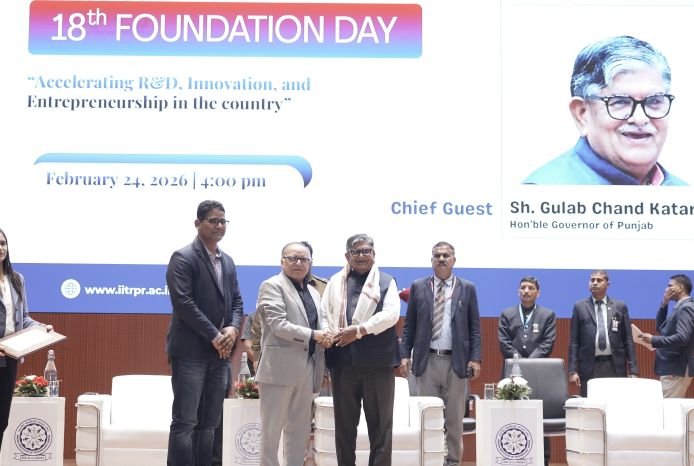 The Central Board of Secondary Education (CBSE) after a gap of six years, in October issued revised new affiliation bye-laws for its affiliated and aspirant schools in the hope that the cumbersome process before and after affiliation becomes affable. The revision of these affiliation bye laws (first notified in 1988 and revisited in 2012) had been ordered by the union ministry of Human Resources Development early this year with the view of streaming lining the complex affiliation process that was a source of constant disquiet for school owners even as CBSE affiliated school system is growing in its numbers (presently 20783 schools are affiliated with the Board) and popularity. However, despite boasting claims of having completely revamped these laws to ensure speed, transparency, hassle-free procedures and ease of doing business with the CBSE, majority of private schools, which are traditionally at the receiving end of the ‘regulator’ aren’t very excited about the revised regulations as a lot is desired to be done to help schooling system to meet the social, economic and technological challenges.
The Central Board of Secondary Education (CBSE) after a gap of six years, in October issued revised new affiliation bye-laws for its affiliated and aspirant schools in the hope that the cumbersome process before and after affiliation becomes affable. The revision of these affiliation bye laws (first notified in 1988 and revisited in 2012) had been ordered by the union ministry of Human Resources Development early this year with the view of streaming lining the complex affiliation process that was a source of constant disquiet for school owners even as CBSE affiliated school system is growing in its numbers (presently 20783 schools are affiliated with the Board) and popularity. However, despite boasting claims of having completely revamped these laws to ensure speed, transparency, hassle-free procedures and ease of doing business with the CBSE, majority of private schools, which are traditionally at the receiving end of the ‘regulator’ aren’t very excited about the revised regulations as a lot is desired to be done to help schooling system to meet the social, economic and technological challenges.
Experts cite several new impractical and unfriendly regulations in the new set of laws that put onus on school managements on virtually everything even though some responsibility falls in the domain of government and other players. At the same time there are several welcome reforms that will come with these new rules.
As per the new regulations the no objection certificate (NOC) once issued by the state government will not be duplicated by CBSE and will be considered at par for purpose of affiliation and along with other criteria will qualify for issuance of letter of intent. “For issuing recognition under RTE Act and NOC, the state education administration verifies various certificates to be obtained from local bodies, revenue department, cooperatives department, etc. The CBSE re-verifies them after applications are received. This is very long drawn process. Therefore, to prevent this duplication, schools will now be required to submit only two documents at the time of applying for affiliation, instead of 12-14 documents being submitted earlier: one would be a document vetted by the head of district education administration validating all aspects such as building safety, sanitation, land ownership, etc, and another would be a self-affidavit where the school would certify its adherence to fee norms, infrastructure norms, etc.,” said a statement issued by the ministry of HRD. The entire process from application, to inspection, to grant of affiliation was made paperless by the Board in March 2018. For the new byelaws too, the entire process will be only online. Applications shall henceforth be disposed off in the same year. While highlighting the main changes, Prakash Javadekar while releasing these new bye laws had said that the new byelaws denote a major shift from the highly complex procedures followed earlier, to a simplified system based on preventing duplication of processes.
According to Ashok Pandey, Principal Ahlcon International school Delhi, and former chairman of National Progressive Schools Conference (NPSC) of CBSE schools considers the revised affiliation by-laws as a reform measure in the CBSE’s scheme of things. “For a very long time, the affiliation criteria have hinged on infrastructure and input quotient. The learning culture, ethos and outcomes hardly figured at the entry point of schools in the CBSE fold. It was also a cumbersome process for two people in a few hours to rush through the school plant, labs, libraries, sports and cultural facilities. On many occasions, the facilities were created post haste for the inspection without any guarantee for its continuance. The new scheme is a division of labour between the local education authorities and the CBSE. The local bodies ensure the plant upkeep, standards and safety. The CBSE focuses on the learning,” he adds while spelling out the real challenge, which is to create a robust and objective rubric to assess the presence and potential of the learning culture.
Inspection of schools, a bone of contention, will now be outcome-based and more academic and quality oriented, rather than focussing only on school infrastructure. The inspection will focus on academic excellence and progress of students over time, innovations and quality of pedagogy, capacity of teachers and teacher training, inclusive practises in school, quality of co-scholastic activities, whether curricular load is as per norms, whether there is adequate focus on sports and games, etc. This will not only help the Board and the school to track students’ progress over time, but will also identify areas that would need further efforts. In the new byelaws, the school inspection will be done as soon as applications are received. On satisfactory inspection report, the Board will issue a Letter of Intent to the school, indicating its intention to affiliate the school. The school will then be expected to fulfill all the conditions laid down under the rules in the post-affiliation process, such as recruitment of qualified teachers, special educator, wellness counsellor, salaries through digital payment, etc. On complying with all these conditions, the school will submit an online commencement certificate latest by 31st March of the given year, based on which, the Board shall confirm affiliation of the school. Only then the schools shall be able to start new academic session under CBSE.
According to ATB Bose, a long time critic of CBSE, mathematics textbooks author and General Secretary of the Association of Managements of Private Schools (AMPS) of Tamil Nadu who is also the secretary of the trust running Kavi Bharathi Vidyalaya in Chennai, the new bye laws have further tightened noose around private schools and indirectly may help school chains to expand at the expense of local privately owned schools. Listing a whole lot of contrarian rules Bose thinks the new bye laws doesn’t address the basic requirements of the system. “A school has to pay for inspections which include surprise inspections and everybody knows the truth of these inspects. It is way of extortion more inspection fee and corruption,” he says.
As per CBSE norms, the schools will now have to appoint counselors who are post graduates in psychology, separate physical teachers for primary, middle, secondary and senior secondary classes on a 1: 500 ratio, adhere to 2005 building code, ensure adherence to child safety guidelines as stipulated by the disaster management authority on instructions from the Supreme Court, prescribe NCERT books, provide for 25% EWS reservation, PTR of 1:40, class room, laboratory and library of a specific sizes, a computer lab of 20 computers for every 800 students, etc. Another contentious and illogical regulation is having 50% representation of women in school management committees (SMCS).
And compliance of each of these has its own challenges and cost to the school. There aren’t enough psychology post graduates in the country to fill up counselor vacancies. However, Lakshya Chhabaria, President of the Affordable Private Schools’ Association in Delhi appreciates the fact that the CBSE has introduced a new concept of Innovative School in which schools will get affiliation from 9th Class to 10th Class and 9th Class to 12th Class. “These schools will dedicatedly focus on skills of the students. Also this innovation will bring more practical schools in the nation,” he says. It may be mentioned that a special category of innovative schools has been added to include specialized schools, not covered elsewhere in these byelaws, who are implementing innovative ideas in the fields of skill development, sports, arts, sciences, etc.
So, while the new bye laws are reformative, progressive and address many an hitherto unpleasant issues, the failure to take ground reality into consideration and respect autonomy of individual schools also leaves one disappointed. Therefore a debate must go on to keep the fire burning. …Autar Nehru





